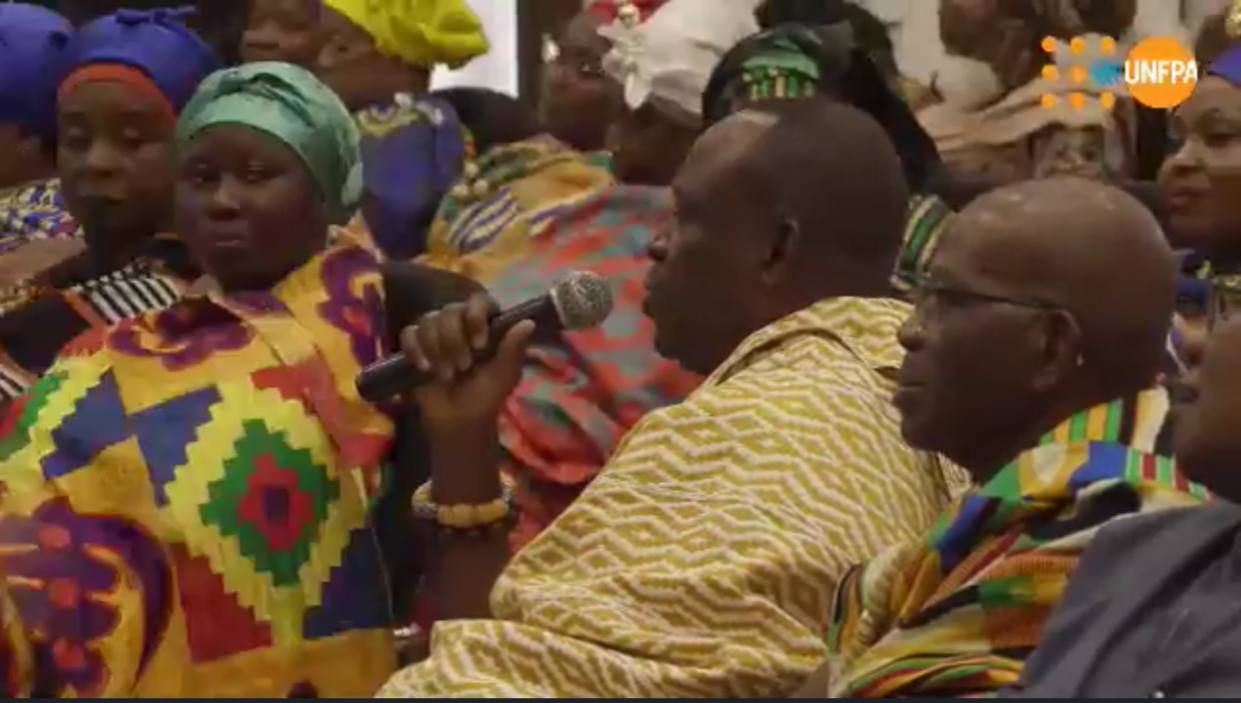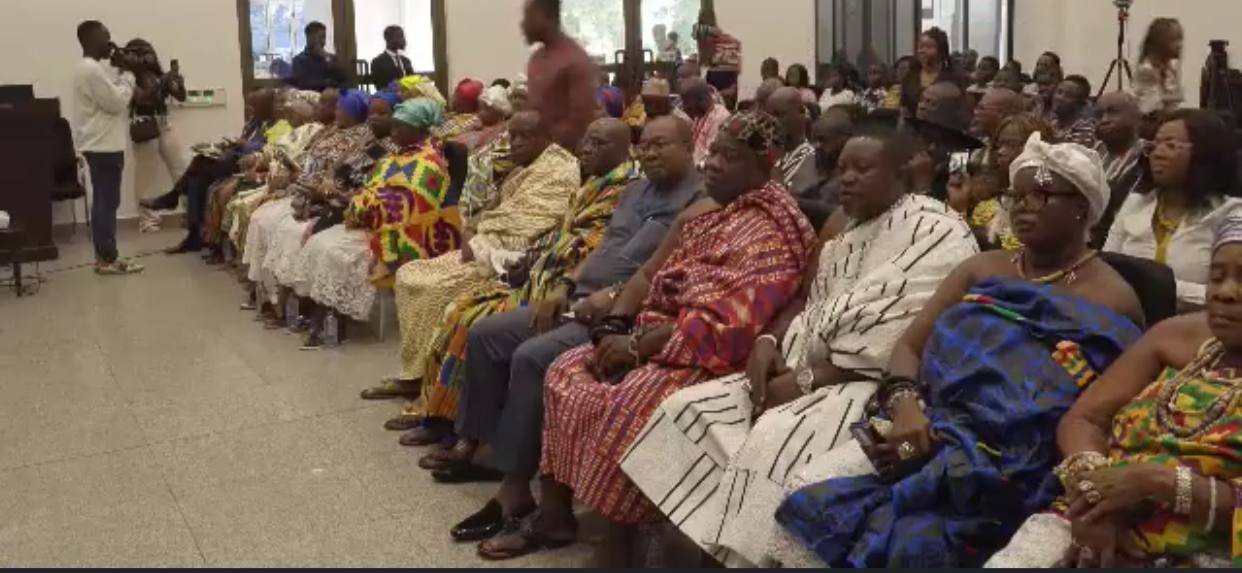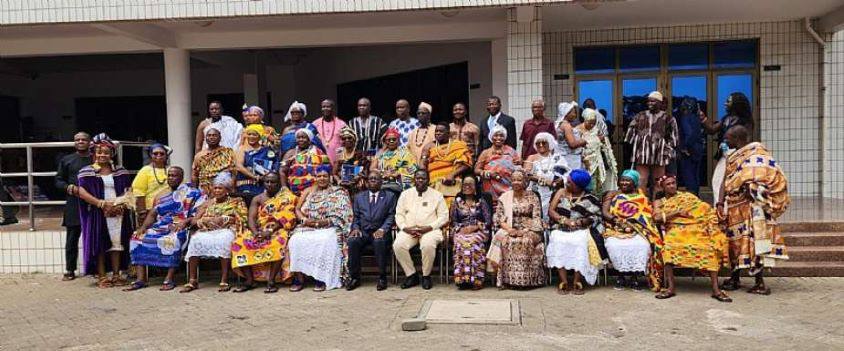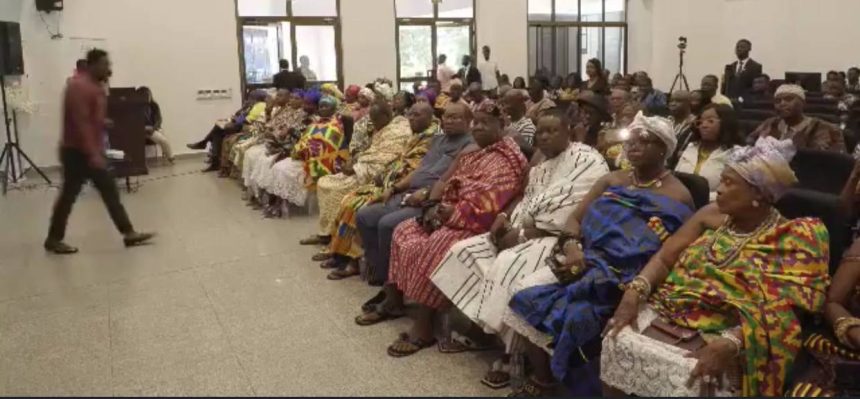In a recent stakeholder engagement seminar organized by the Otumfuo Centre for Traditional Leadership, the University of Professional Studies, Accra (UPSA), and the United Nations Population Fund (UNFPA), the urgent need to re-evaluate cultural norms and practices hindering global development and human rights progress was emphasized.
The Seminar was held at the West Wing of the Kofi Konadu Auditorium, UPSA, on the theme “Ghanaian Culture and the Quest for Women and Children’s Rights” on Friday July 19 2024.
UNFPA Country Representative, Dr. Wilfred Ochan, addressing the audience, stressed the importance of critically examining outdated cultural practices and reforming them to align with modern principles of human rights and equality.
He presented compelling data illustrating the detrimental impact of certain cultural practices on health outcomes, gender equality, and economic development, based on UNFPA’s comprehensive research and fieldwork across various cultural contexts.
“While cultural heritage enriches societies, certain practices must be reformed to align with modern principles of human rights and equality. UNFPA’s research and fieldwork have shown the detrimental impact of certain cultural practices on health outcomes, gender equality, and economic development”, Dr. Ochan said.
Dr. Ochan also highlighted the necessity of addressing barriers comprehensively and with sensitivity to local contexts to fully realize sustainable development goals.
While acknowledging the intrinsic value of cultural diversity, he emphasized that certain traditions and values can pose significant obstacles to achieving sustainable development and upholding human rights standards worldwide.
He called for collaboration among traditional leaders, government, civil society organizations, and communities to foster dialogue and initiate necessary reforms.
“By re-examining cultural practices, we can promote sustainable development, uphold human rights standards, and empower individuals to reach their full potential, therefore Traditional leaders, government, civil society organizations, and communities must collaborate to foster dialogue and initiate reforms where necessary”, he added.
Emphasizing the importance of respecting cultural identities while advocating progressive change, Dr. Ochan stressed the empowerment of individuals, particularly women and girls, to fulfill their potential and contribute meaningfully to society.

Nana Agyemang Duah Katakyie III, Divisional Chief of Seinnuah Stool Lands in the Ahafo Region, urged parents to take proactive steps in safeguarding their children from early pregnancy.
He emphasized the importance of education and open communication within families to raise awareness about the risks associated with early sexual activity.
The Development Queen Mother of Afigya-Kwabre District in the Ashanti Region, Nanahemaa Adwoa Awindor, called on traditional leaders to instill discipline within communities to combat the rising issue of teenage pregnancies.
She stressed the need to discourage cultural practices that infringe upon the human rights of young individuals and urged unity in re-evaluating such practices for a more just and equitable global society.

The seminar provided a platform for stakeholders to address critical cultural challenges hindering development and human rights progress, marking a significant step towards fostering positive change in communities.
By advocating for a reassessment of deeply rooted beliefs and traditions, the participants emphasized the urgency of promoting gender equality and women’s empowerment.
Through education, awareness-raising, and collective action, there is optimism about creating a more inclusive and just society that values the rights and contributions of all individuals, regardless of gender.

–
Story by: Kelly Adjetey Boye | univers.ug.edu.gh

